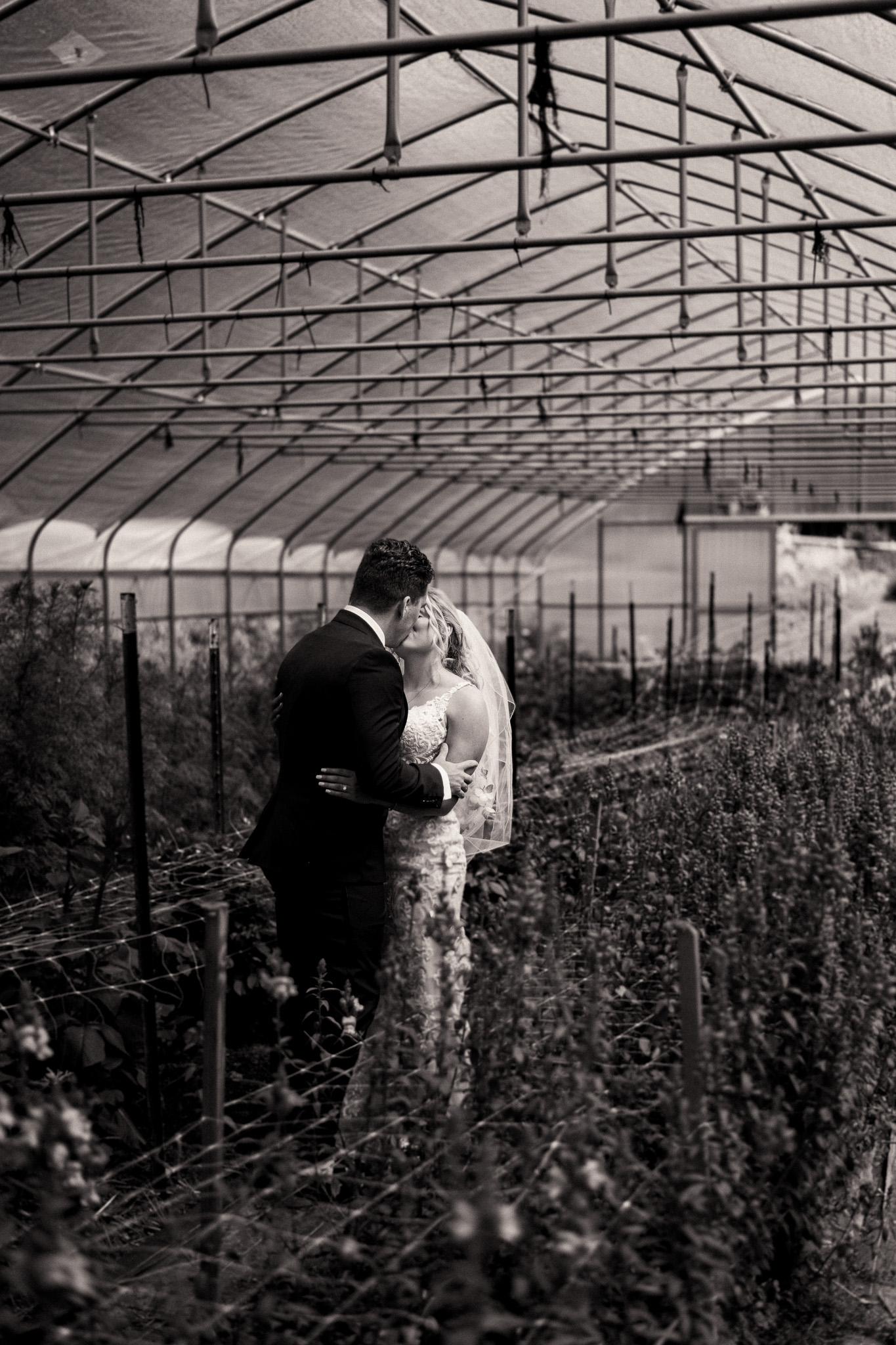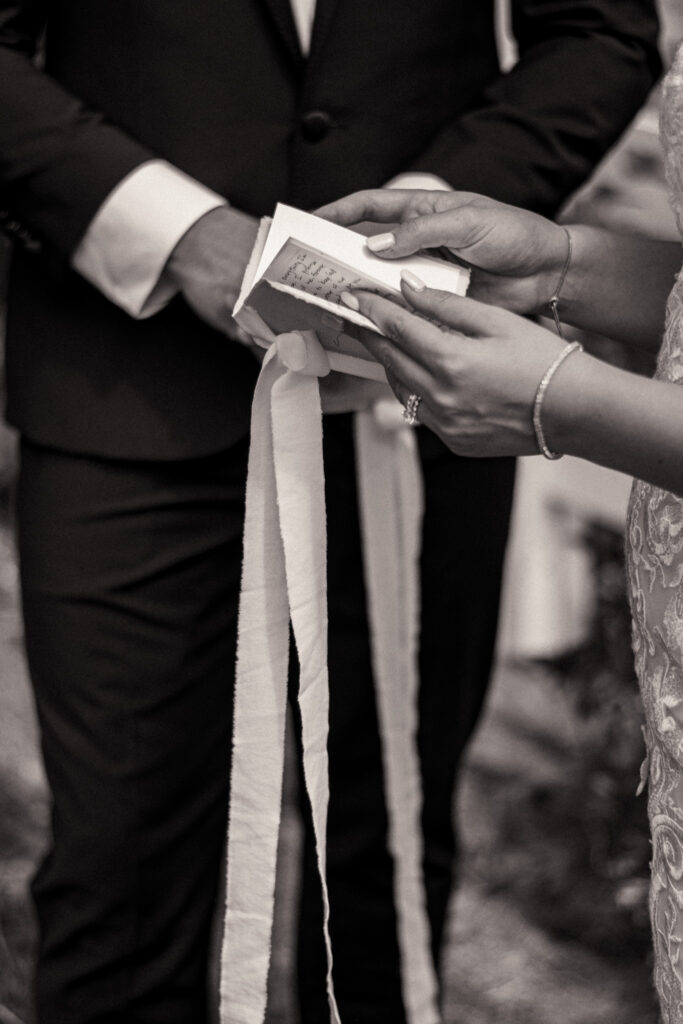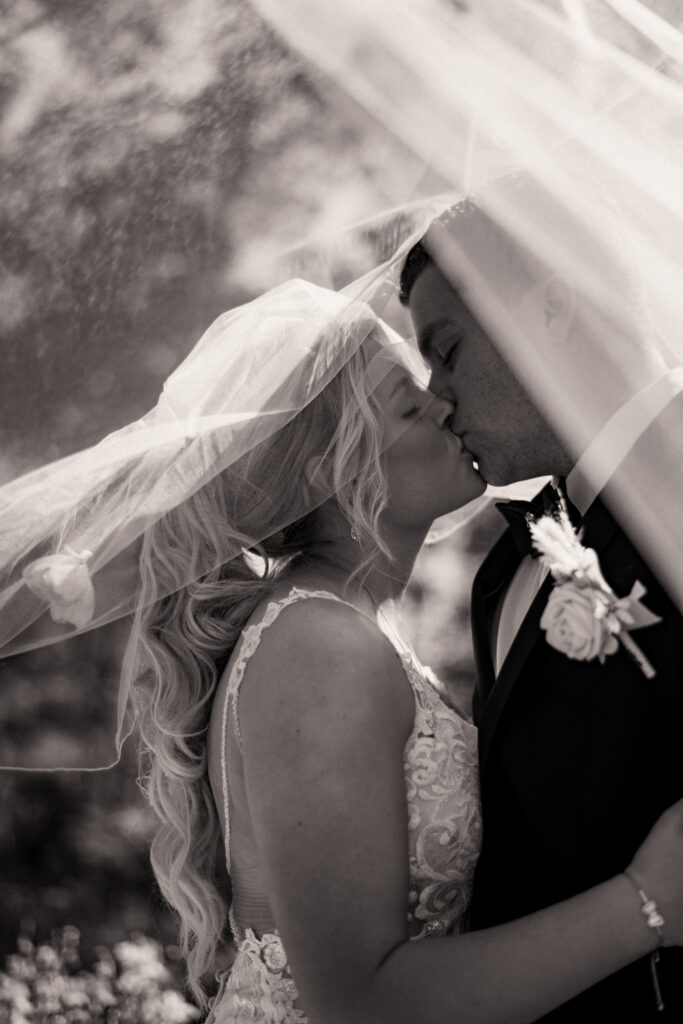How To Self-Solemnize; A Guide to Self-Solemnization & Self-Uniting Ceremonies
May 24, 2023
wildelementsphotography

A Guide to Self-Solemnization; How to Self-Solemnize & Marry Yourselves
Did you know you can marry yourselves without an officiant or witnesses? Imagine a wedding ceremony that is truly yours — no officiant, no witnesses, just you and your partner in a moment of untainted and genuine connection. This unique experience happens through a process known as self-solemnization. This article explains how to self-solemnize, and what you’ll need to do so.
What is Self-Solemnization?
Self-solemnization is the act of self-uniting, or performing your own wedding ceremony. Self-solemnization leaves behind any interference from a religious, or governmental third-party figure. Under this concept, you and your partner are have the freedom to perform your own marital ceremony. You have the power to design your ceremony to be deeply reflective of your relationship, free from external influences.
Understanding How to Self-Solemnize
While the idea of self-solemnization is liberating, it’s important to be aware of certain legal caveats regarding this process. The primary factor to consider is location, since only specific states and jurisdictions legally recognize self-solemnization.
- District of Columbia and Colorado: Both are highly sought-after, and easily the most ideal destinations for self-solemnization. This is largely due to the fact that there are little to no restrictions in candidacy. In these regions, couples simply need to apply for, complete, and file a marriage license with the County Clerk and Recorder’s office. The ease of planning a self-uniting ceremony in these locations creates a sense of convenience. The legal paperwork is minimal, and straightforward.

The following states also permit self-solemnization, though each has its own set of rules and regulations:
- Pennsylvania: Pennsylvania law dictates that two consenting people can marry under the guise of self-solemnization, but they must have two witnesses present during the time of signing of the marriage license.
https://www.legis.state.pa.us/cfdocs/legis/LI/consCheck.cfm?txtType=HTM&ttl=23&div=0&chpt=15
- Illinois: People who will be married within the compliance of various religious and/or Indigenous ceremonies are granted the opportunity to self-unite, but only under these principles will a self-uniting marriage be legally recognized.
- Maine: Maine will acknowledge self-uniting ceremonies as valid and true if you are a follower of the Quaker religion, and the ceremony pertains to the guidelines set forth by that particular faith.
https://www.maine.gov/portal/residents/marriage.html
- Wisconsin: In Wisconsin, the legislature upholds the right couples reserve to marry themselves in place of an officiant or someone with equivalent authority, given the couple signs a form stating that they are in full understanding that the government can not assure the couple’s self-solemnized ceremony will be recognized in all possible scenarios.
https://docs.legis.wisconsin.gov/statutes/statutes/765/16
- California: California has created a separate marriage license application for “non-clergy” marriages, which are referred to as the License and Certificate of Marriage for Denominations Not Having Clergy. This type of marriage license still warrants that the couple must obtain two witness signatures to validate the marriage.
- Nevada: People who identify under the ‘Quaker’ or ‘Friends’ faith are permitted to perform self-solemnized marriages under Nevada law.
https://www.leg.state.nv.us/nrs/nrs-122.html
- Kansas: Similarly to the rules of Nevada and Maine, Kansas will only recognize the marriage of two people who self-marry if they adhere to the customs and regulations pertaining to certain religious affiliations.
How to Plan a Self-Uniting Ceremony
To begin planning your self-uniting ceremony, first, verify the legal requirements in your chosen location. A quick call to the County Clerk’s office will clarify any jurisdiction-specific regulations. Confirming these rules and regulations directly from the source is a great way to bypass any misunderstanding that could hinder the legality of your marriage. Once you have ensured compliance with local laws, you can focus on crafting a ceremony that is uniquely yours.
Consider the elements you wish to include in your ceremony: personalized vows, meaningful readings, music, or even symbolic rituals. Whether you choose to invite family or keep the moment entirely private, this day should be a translation of your shared values and vision.
If you’re traveling to your ceremony destination, strategically plan ahead to ensure you have everything you need. Don’t forget to apply for your marriage license within the appropriate time frame — generally no more than 90 days before your ceremony, and no less than one week in advance.
What If Self-Solemnization Isn’t Legal in My Destination?
If your chosen location does not permit self-solemnization, consider alternative options that still honor the spirit of your commitment. Many couples opt for a legal ceremony at home, followed by a symbolic or commitment ceremony in their dream destination. This allows you to experience the joy and intimacy of your wedding day without having to worry about various legal constraints.
A commitment ceremony can include all the elements of a traditional wedding, minus the legal formalities. This option provides flexibility. You can choose to complete the legal aspect before, after, or not at all, depending on your preferences. There is an ever-growing list of reasons why one may want to skip the legal formalities surrounding marriage, but still want to honor and celebrate their love accordingly – and that’s okay.
Do I Have to Elope to Self-Marry?
People often associate self-solemnization with the freedom of eloping, but it’s not a requirement. You can choose to self-marry in a traditional wedding setting or during a private elopement — the decision is entirely yours.
The beauty of modern marriage lies in the ability to design a ceremony that truly represents your partnership. While society has made significant progress in marriage equality, there is still more work to be done. By supporting the right to choose how we define our marital experiences, you’re opening the doorway for positive changes to continually unfold.
Need Assistance with Your Self-Uniting Ceremony?
As a dedicated Destination Wedding & Elopement Photographer, I’m here to guide you through the intricacies of planning your self-uniting ceremony. The process can feel overwhelming, but with the right support and detailed planning, we can bring your vision to life.
If you’re ready to start this journey together, fill out this form to schedule a consultation. Let’s explore your story, and craft a day that you’ll cherish forever.

How to Self-Solemnize ~ Guide to Self-Solemnization ~ How to Marry Yourselves ~ Self-Uniting Marriage ~ Self-Uniting Ceremony ~ Self-Solemnize ~ Self-Solemnization
Leave a Comment